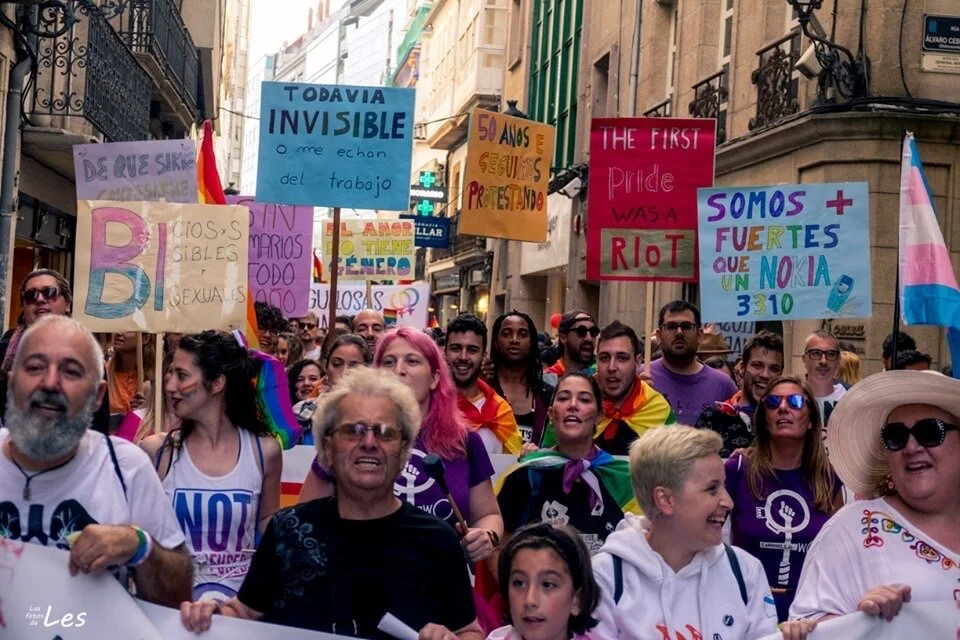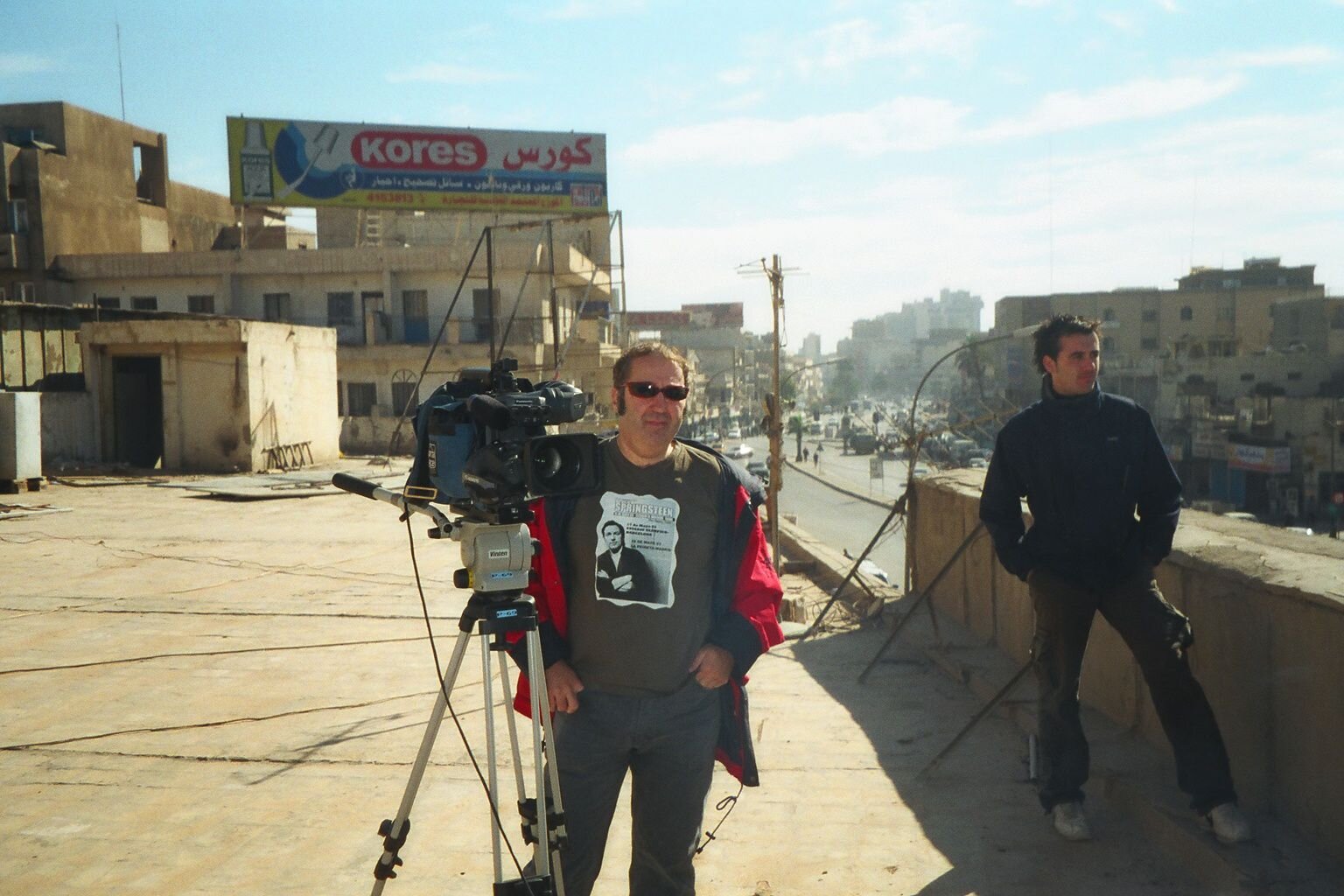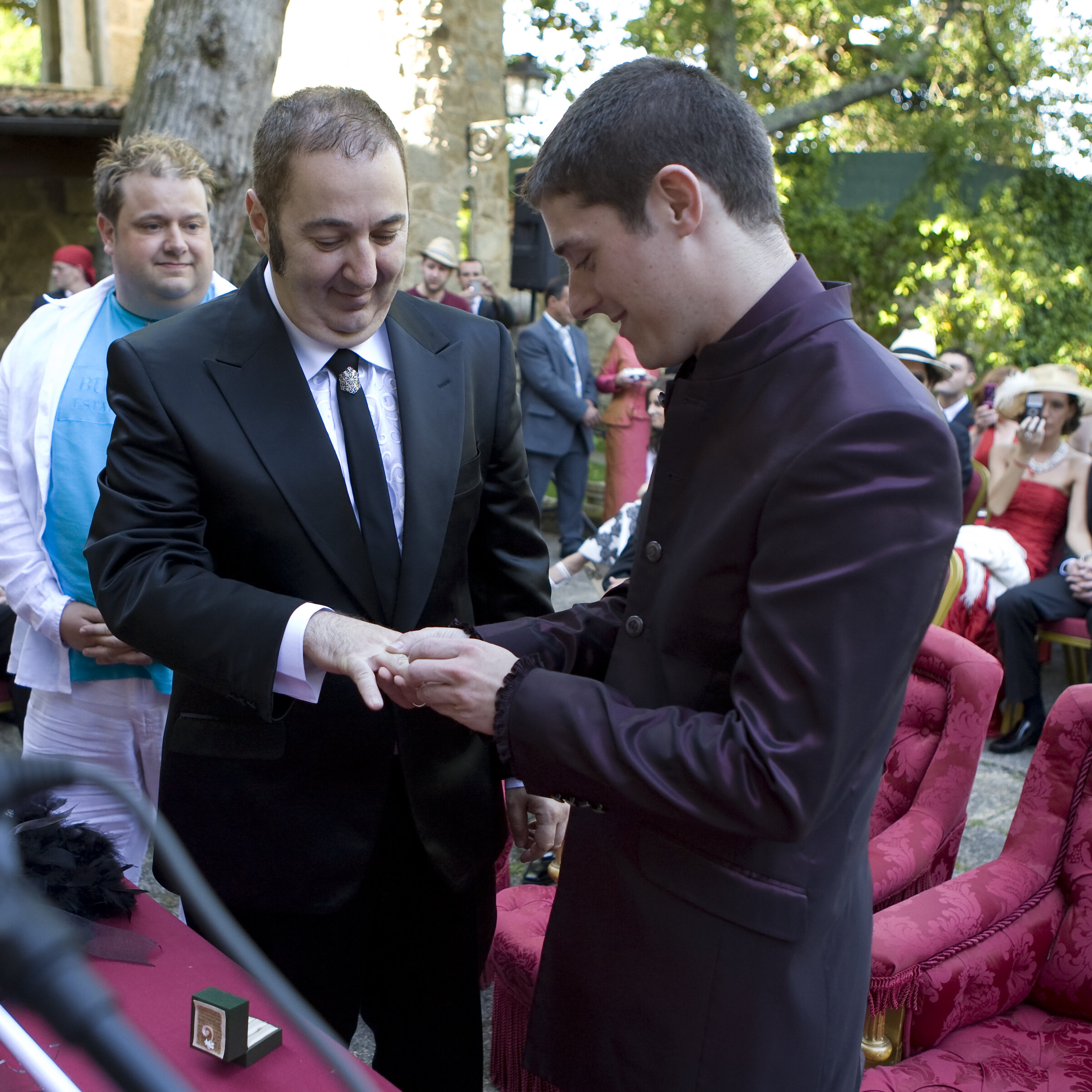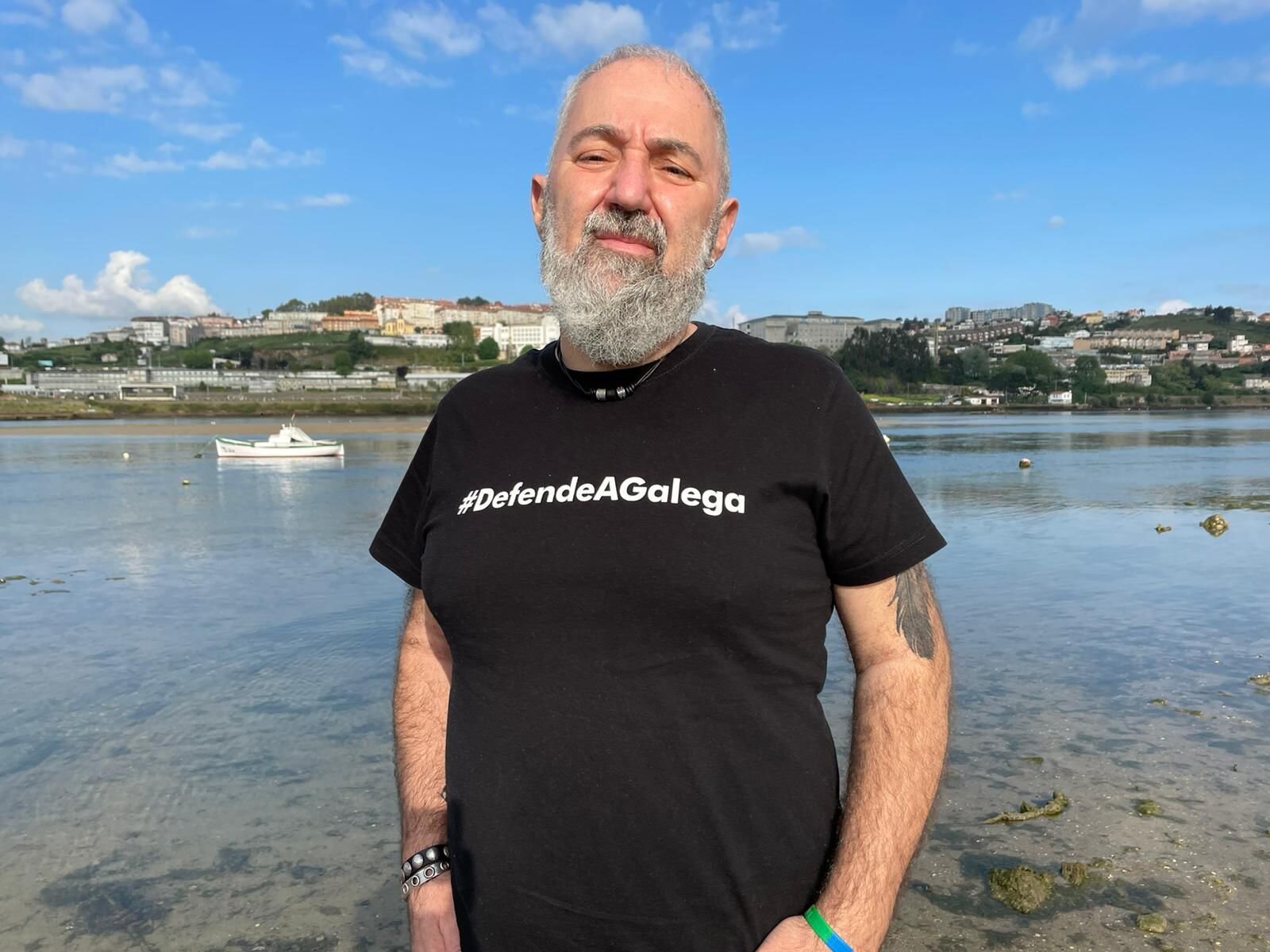Worker harassment at Televisión de Galicia
Photo: Fito Ferreiro Seoane
LGBTI Rights and whistleblower protection are closely intertwined in modern Spain
Today, June 28th, International LGBTI Pride Day is celebrated to make the fight for equality and dignity of gay, lesbian, bisexual and transgender people visible.
The recognition is needed for good reason: 75% of workers report having seen some kind of verbal aggression towards lesbians, gays, bisexuals, trans and intersex people at work, according to the results of a research survey by Spain’s Unión General de Trabajadores (UGT).
Today Blueprint for Free Speech is publishing a research report in English and Spanish on the perceptions of Spanish workers when it comes to reporting serious wrongdoing in their companies and organisations. Mistreatment of LGTBI workers because of their sexuality is one such type of wrongdoing.
Such worker mistreatment highlights the fact that not all serious wrongdoing called out by whistleblowers is about fraud or corruption. Sometimes whistleblowers’ reports are about other types of illegality.
According to our new report Whistleblowing in Spain: Workers, Management and Speaking Up released today, less than half (45%) of Spaniards surveyed in a national poll believe that their organisation is serious about protecting whistleblowers. Those in lower-skilled jobs or on lower incomes were even less confident of that protection.
This a dismal vote of no confidence by Spanish workers in their employers’ willingness to take whistleblowers seriously.
“In the end , you get used to being bullied…”
Spain was the third country in the world to legalize same-sex marriage in 2005. Sixteen years later, having a minority sexual orientation can still be the cause of harassment at work, even in the media.
Fito Ferreiro Seoane is a cameraman from A Coruña who has been working at Televisión de Galicia (TVG) since 1985; he has held a permanent position in this company since 1986.
Seoane has filed a lawsuit in the 2nd Social Court of Santiago de Compostela denouncing the situation of ‘labor harassment’ that he claims he has suffered since 2005 for his ‘union and political activity and for his sexual orientation, since he is homosexual.’
Ferreiro says that he did not recognise the cause of the anxiety attacks he suffered to work until a little over a year ago, when a social security psychologist made him see that it was his work environment that was causing him stress.
‘I began to realize that I was suffering harassment,’ he explained. ‘It is someone from the outside who made me see it... In the end you get used to being bullied, especially as LGBTI people, as we are used to them saying so many things about us; you get a hard skin.’
He explains how the problems began. ‘When my LGBT activism became public, when I took the step and started giving interviews, [and] when they gave me a position in the [political] party... When those two things flourished, I noticed that my professional career began to disappear.’
As well as being a professional video journalist, Ferreiro has been an activist defending the rights of the LGBTI community since 1998, first independently - he was founder of the ALAS association - and from 2006, with the social democratic party PSOE. He became Federal coordinator of the LGBTI groups of that party and also a local councillor in A Coruña from 2015 to 2019.
He argues that despite his extensive experience covering complex assignments, such as war and other conflicts in Iraq, Afghanistan, East Timor, Bosnia and Venezuela, the company no longer even calls on him to cover regional or national elections.
According to Ferreiro, his case is not the only one. There are other employees who hide their sexual orientation in Televisión de Galicia – with good reason.
‘I have a permanent position in television and they cannot fire me. A contract employee whose contract runs out in 6 months, they don't renew it and... that's the problem,’ he said.
The trial of his case was to be held on June 28, a symbolic day for the LGBTI community. However, the date has been postponed until September 2021.
Ferreiro's objective in the legal action is not economic. He was required by the legal system to make a claim for a Euro amount, but it is minimal. The action is to make a point, not to make money.
‘It is a demand for fundamental rights ... It is a matter of dignity and that my professional career be reinstated, and at least that my last 6-8 years of work, I can exercise them in Coruña ...’
‘What I did ask for is that courses on LGBTI-phobia - LGBTI equality in the company - be given to both workers and the company's management. That point is non-negotiable,’ he said.
Others at work may be too afraid to speak up, he explained, but ‘a large part of Televisión de Galicia was happy with this denunciation because many feel harassed in a certain way, either only at work, or for being a woman...’
Influences at Televisión de Galicia
Ferreiro noted that members of Opus Dei were at Televisión de Galicia. Founded in 1928 in Spain, Opus Dei is a secretive, controversial and very conservative institution within the Catholic Church. Opus Dei members have previously supported or participated in authoritarian or right-wing governments, such as the fascist Franco regime that ruled Spain until 1978. The church caused controversy when it canonised the founder of Opus Dei in 2002.
Within the Catholic Church homosexuality remains taboo. In March this year, the church confirmed its refusal to bless same-sex marriages via a statement from the Vatican’s orthodoxy office, saying God 'cannot bless sin'.
‘Opus Dei people were already there with Fraga, and they are still there,’ Ferreiro said of Televisión de Galicia. Manuel Fraga served as Propaganda Minister in the Franco Government and founded the conservative Partido Popular (PP).
‘A Secretary General of the PSOE in Galicia went so far as to say that the Galician Television was in the hands of 10 different families of the PP,’ he said.
The precariousness of exposing wrongdoing
The story of Fito Ferreiro Seoane is an example of the vulnerability to which workers and laborers may be subjected when it comes to whistleblowing about serious wrongdoings that may be committed by their companies. The data from Blueprint’s new study, based on a representative national survey, supports Spanish workers’ sense of precarity:
Less than half (45%) of the people surveyed believe that their company takes the protection of whistleblowers seriously.
Lower-paid workers, and those in lower-skilled jobs, have less confidence in management’s protection of whistleblowers than more highly paid workers:
Only 40% of workers earning up to €18,000 a year, compared to 53% of those earning more than €60,000 a year, believe management is s serious about protecting whistleblowers
Only 41% of technicians, clerical and service workers and 46% of workers in elementary occupations and the armed forces agree that their organization would make a serious attempt to protect a whistleblower. The figure rises to 51% among managers and professionals.
‘Our survey shows that only a minority of workers believe their companies and organisations will protect whistleblowers. Lower-income workers are less trusting of their employers,’ says Bruno Galizzi, researcher at Blueprint for Free Speech.
‘For example, if workers believes that their workplace management is biased because of sexual orientation or union activity or political ideology, they will probably not report it, to avoid bigger problems. The bad situation for workers becomes chronic because the company management will continue to be biased and employees will remain silent for fear of retaliation,’ said Galizzi.





